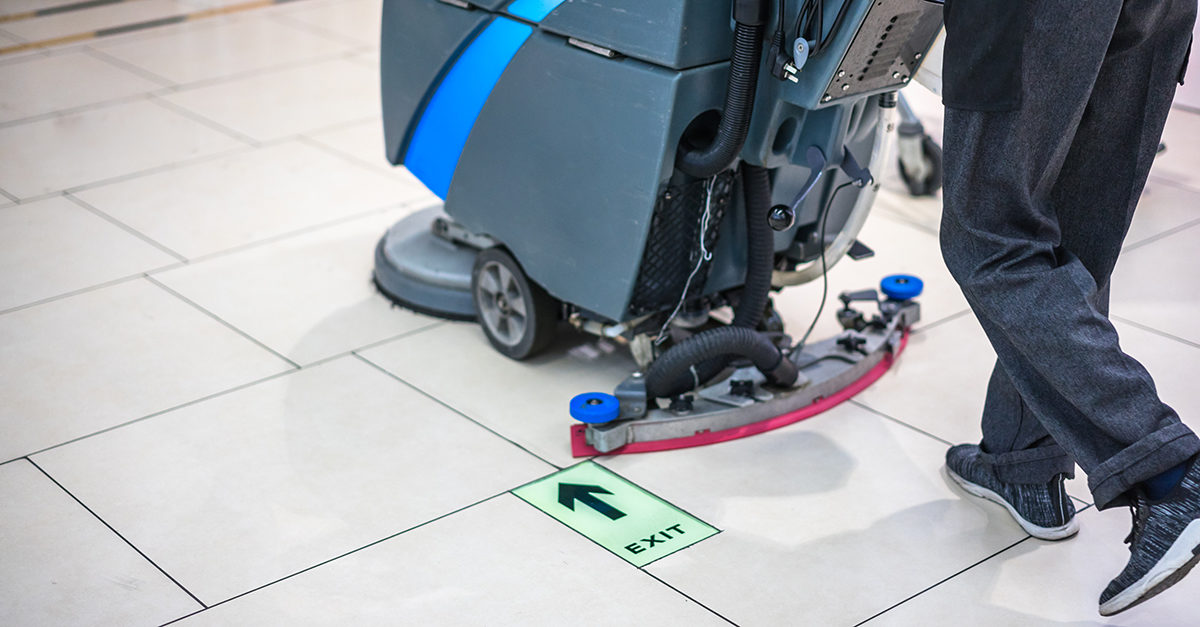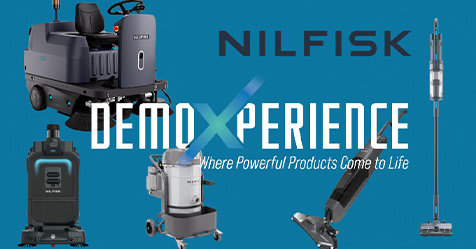As businesses, restaurants, and schools reopen, stringent procedures for cleaning and disinfecting public spaces will help ensure the public’s health. According to a recent report in Education Week, more than $100 million of the U.S. government’s $2 trillion coronavirus stimulus bill will be used toward cleaning and disinfecting schools around the nation. The jansan industry is certain to see a spike in service demand and floor care equipment will be a crucial component of daily processes.
Cleaning professionals will be seeking equipment power solutions that can deliver reliable, consistent performance, with minimal downtime and maintenance requirements. Batteries constructed with Thin Plate Pure Lead (TPPL) technology are manufactured with flat plates made of 99% pure lead. Pure lead plates can be made thinner, so more can be placed in the battery for increased power. This robust technology—designed in the 1970s for military applications—provides maximized power and a long life to survive the most demanding conditions. Today, TPPL technology also provides the long life and power required for scrubbers, sweepers, and other cleaning equipment, especially after sitting idle for extended periods of time or during increased usage.
Advantages of TPPL technology
TPPL batteries provide a virtually maintenance-free power solution for floor care operations, comparable to more recent battery technologies introduced to the market, such as lithium-ion (li-ion) solutions, but at a lower price point. TPPL batteries do not require long equalize charges to remove sulfate crystal buildup as with conventional flooded products, and also have no watering or battery-washing requirements, eliminating the risk of damaging spills on floors and carpets. Removing these labor-intensive upkeep procedures saves operators time, and allows them to focus on core business operations.
Due to their sealed lead acid construction, these batteries emit minimal gas. This attribute makes TPPL batteries an ideal solution for floor care applications in areas with critical ventilation requirements such as hospitals, medical laboratories, and assisted-living facilities.
Compared to conventional flooded batteries with an average life of 300 to 800 cycles, TPPL batteries deliver up to 1,500 cycles at 60% Depth of Discharge (DoD), which is the degree to which a battery is discharged in relation to its total capacity. The increased cycle life of TPPL batteries extends battery life and helps to reduce battery replacement costs. TPPL batteries also have a low self-discharge rate and long storage life, with the ability to perform after months of inactivity—a key feature for equipment that has been sitting idle since stay-at-home orders were issued.
Quick charging leads to ample opportunities
As TPPL batteries can be charged quickly, they are suitable for opportunity charging during breaks and at the end of a shift. They can be put back into service before they are fully charged. These flexible charging capabilities make TPPL batteries a solution for multi-shift medical facilities and extended-hour educational and municipal buildings.
Reliable power for uncertain times
The reopening of public spaces after shutdown or reduced operation strongly relies on public health strategies, testing, and social distancing. Cleaning and disinfecting strategies are equally as important to help reduce the risk of exposure to the SARS-coV-2 virus that causes COVID-19. It is essential that floor care equipment operators have a reliable source of power for cleaning equipment that can remain in operation through an entire shift. TPPL batteries can provide a user-friendly, cost-effective, and dependable power solution.



